Filter by

Contextualizing premodern philosophy: explorations of the Greek, Hebrew, Arab…
- Edition
- -
- ISBN/ISSN
- 9781003309895
- Collation
- -
- Series Title
- -
- Call Number
- -
- Edition
- -
- ISBN/ISSN
- 9781003309895
- Collation
- -
- Series Title
- -
- Call Number
- -
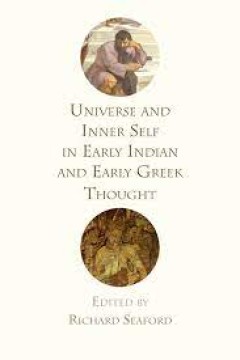
Universe and Inner Self in Early Indian and Early Greek Thought
From the sixth century BCE onwards there occurred a revolution in thought, with novel ideas such as such as that understanding the inner self is both vital for human well-being and central to understanding the universe. This intellectual transformation is sometimes called the beginning of philosophy. And it occurred – independently it seems - in both India and Greece, but not in the vast…
- Edition
- -
- ISBN/ISSN
- 9781474411004
- Collation
- 320
- Series Title
- -
- Call Number
- 100 UNI
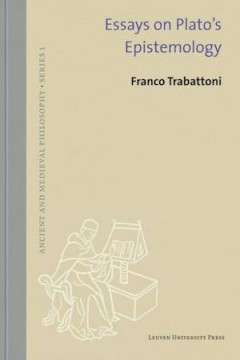
Essays on Plato’s Epistemology
Through a careful survey of several significant Platonic texts, mainly focussing on the nature of knowledge, Essays on Plato's Epistemology offers the reader a fresh and promising approach to Plato's philosophy as a whole. From the very earliest reception of Plato's philosophy, there has been a conflict between a dogmatic and a sceptical interpretation of his work and thou…
- Edition
- -
- ISBN/ISSN
- 9789462700598
- Collation
- 336 halaman
- Series Title
- Ancient and Medieval Philosophy - Series 1
- Call Number
- 100 TRA e
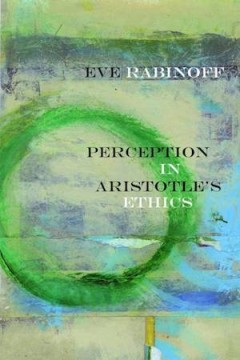
Perception in Aristotle’s Ethics : Rereading Ancient Philosophy
Rabinoff strives to account for ethical perception (aisthesis) in Aristotle's ethics—to give it a place of importance in ethical choice and action—and to offer an account of the faculty of perception expansive enough to include reception of the ethical significance of particulars. The book is motivated by particular features of Aristotle's thought and by increasing philosophical a…
- Edition
- -
- ISBN/ISSN
- 9780810136434
- Collation
- 208 halaman
- Series Title
- -
- Call Number
- 100 RAB p
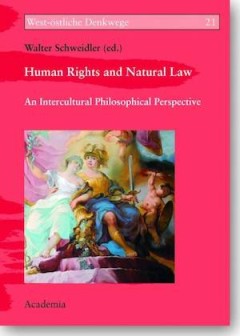
Human Rights And Natural Law : An Intercultural Philosophical Perspective
It was in ancient Greek philosophy where the idea arose that there is a supreme law before which any civil law created by human societies has to be justified. Since then the concept of natural law not only remained one of the paradigms of Western civilization but has shaped the development of international legislation in general. The understanding of the significance of the idea of a natural la…
- Edition
- -
- ISBN/ISSN
- 9783896655677
- Collation
- -
- Series Title
- -
- Call Number
- 340 SCH h
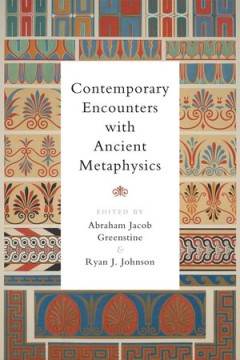
Contemporary Encounters With Ancient Metaphysics
Like the ancient inquiries into the nature of things, contemporary continental realism and materialism, from Deleuze to the Speculative Realists, embraces a commitment to investigate beings, without subordinating it to analyses of language, consciousness, texts or the social.This pensée brute, traditionally known as metaphysics, dares to question the one and the many, the potential and the a…
- Edition
- -
- ISBN/ISSN
- 9781474412094
- Collation
- 352 halaman
- Series Title
- -
- Call Number
- 100 GRE c

Beyond Autonomy in Eighteenth-Century British and German Aesthetics
This volume re-examines traditional interpretations of the rise of modern aesthetics in eighteenth-century Britain and Germany. It provides a new account that connects aesthetic experience with morality, science, and political society. In doing so, it challenges long-standing teleological narratives that emphasize disinterestedness and the separation of aesthetics from moral, cognitive, and pol…
- Edition
- -
- ISBN/ISSN
- 9781000077247
- Collation
- 314 halaman
- Series Title
- -
- Call Number
- 700 BEY
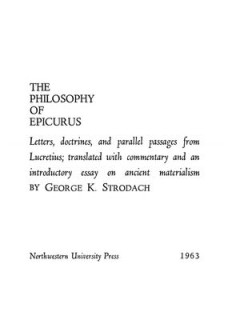
The Philosophy of Epicurus
The teachings of Epicurus, whose philosophy focused on the pursuit of happiness, attracted adherents throughout the ancient Mediterranean world and deeply influenced later European thought. The Philosophy of Epicurus contains a long introductory essay on the philosophy of Epicurus and a selection of primary texts. George K. Strodach translates excerpts from The Life of Epicurous by Diogenes Lae…
- Edition
- -
- ISBN/ISSN
- 9780810138735
- Collation
- -
- Series Title
- -
- Call Number
- -
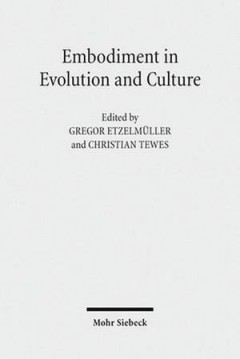
Embodiment In Evolution And Culture
From its beginnings, the theory of evolution has unsettled fundamental anthropological assumptions about the place of human beings in nature. The integration of human origins into natural history by Darwinism was countered by the philosophical anthropologies of the 20th century. Their attempts were to hold on even more resolutely to the special status of humans as beings 'open towards the world…
- Edition
- -
- ISBN/ISSN
- 9783161547362
- Collation
- -
- Series Title
- -
- Call Number
- -
 Computer Science, Information & General Works
Computer Science, Information & General Works  Philosophy & Psychology
Philosophy & Psychology  Religion
Religion  Social Sciences
Social Sciences  Language
Language  Pure Science
Pure Science  Applied Sciences
Applied Sciences  Art & Recreation
Art & Recreation  Literature
Literature  History & Geography
History & Geography